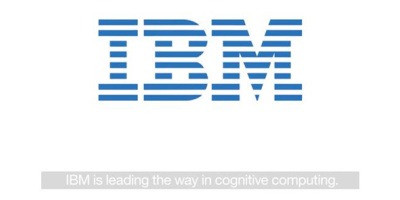Company's unique embedded DRAM is capable of feeding the multi-core processor large chunks of data to make for a smooth entertainment experience.
IBM has announced that it will provide the microprocessors that will serve as the heart of the new Wii U system from Nintendo. Unveiled at the E3 trade show this week, Nintendo plans for its new console to hit store shelves in 2012.
The all-new, Power-based microprocessor will pack some of IBM's most advanced technology into an energy-saving silicon package that will power Nintendo's brand new entertainment experience for consumers worldwide. IBM's unique embedded DRAM, for example, is capable of feeding the multi-core processor large chunks of data to make for a smooth entertainment experience.
IBM's state-of-the-art 300mm chip plant in East Fishkill, N.Y., will be the manufacturing facility for the new custom-designed game chip the company is building for Nintendo's new game console due to hit store shelves next year.
IBM plans to produce millions of chips for Nintendo featuring IBM Silicon on Insulator (SOI) technology at 45 nanometers (45 billionths of a meter).
The relationship between IBM and Nintendo dates to May 1999, when IBM was selected to design and manufacture the central microprocessor for the Nintendo GameCube system. Since 2006, IBM has shipped more than 90 million chips for Nintendo Wii systems.
"IBM has been a terrific partner for many years. We truly value IBM's commitment to support Nintendo in delivering an entirely new kind of gaming and entertainment experience for consumers around the world," said Genyo Takeda, senior managing director, Integrated Research and Development, at Nintendo Co., Ltd.
"We're very proud to have delivered to Nintendo consistent technology advancements for three generations of entertainment consoles," said Elmer Corbin, director, IBM's custom chip business. "Our relationship with Nintendo underscores our unique position in the industry--how we work together with clients to help them leverage IBM technology, intellectual property and research to drive innovation into their own core products."
Built on the open, scalable Power Architecture base, IBM custom processors exploit the performance and power advantages of proven silicon-on-insulator (SOI) technology. The inherent advantages of the technology make it a superior choice for performance-driven applications that demand exceptional, power-efficient processing capability–from entertainment consoles to supercomputers.





















 More than ever, there is a demand for IT to deliver innovation. Your IBM i has been an essential part of your business operations for years. However, your organization may struggle to maintain the current system and implement new projects. The thousands of customers we've worked with and surveyed state that expectations regarding the digital footprint and vision of the company are not aligned with the current IT environment.
More than ever, there is a demand for IT to deliver innovation. Your IBM i has been an essential part of your business operations for years. However, your organization may struggle to maintain the current system and implement new projects. The thousands of customers we've worked with and surveyed state that expectations regarding the digital footprint and vision of the company are not aligned with the current IT environment. TRY the one package that solves all your document design and printing challenges on all your platforms. Produce bar code labels, electronic forms, ad hoc reports, and RFID tags – without programming! MarkMagic is the only document design and print solution that combines report writing, WYSIWYG label and forms design, and conditional printing in one integrated product. Make sure your data survives when catastrophe hits. Request your trial now! Request Now.
TRY the one package that solves all your document design and printing challenges on all your platforms. Produce bar code labels, electronic forms, ad hoc reports, and RFID tags – without programming! MarkMagic is the only document design and print solution that combines report writing, WYSIWYG label and forms design, and conditional printing in one integrated product. Make sure your data survives when catastrophe hits. Request your trial now! Request Now. Forms of ransomware has been around for over 30 years, and with more and more organizations suffering attacks each year, it continues to endure. What has made ransomware such a durable threat and what is the best way to combat it? In order to prevent ransomware, organizations must first understand how it works.
Forms of ransomware has been around for over 30 years, and with more and more organizations suffering attacks each year, it continues to endure. What has made ransomware such a durable threat and what is the best way to combat it? In order to prevent ransomware, organizations must first understand how it works. Disaster protection is vital to every business. Yet, it often consists of patched together procedures that are prone to error. From automatic backups to data encryption to media management, Robot automates the routine (yet often complex) tasks of iSeries backup and recovery, saving you time and money and making the process safer and more reliable. Automate your backups with the Robot Backup and Recovery Solution. Key features include:
Disaster protection is vital to every business. Yet, it often consists of patched together procedures that are prone to error. From automatic backups to data encryption to media management, Robot automates the routine (yet often complex) tasks of iSeries backup and recovery, saving you time and money and making the process safer and more reliable. Automate your backups with the Robot Backup and Recovery Solution. Key features include: Business users want new applications now. Market and regulatory pressures require faster application updates and delivery into production. Your IBM i developers may be approaching retirement, and you see no sure way to fill their positions with experienced developers. In addition, you may be caught between maintaining your existing applications and the uncertainty of moving to something new.
Business users want new applications now. Market and regulatory pressures require faster application updates and delivery into production. Your IBM i developers may be approaching retirement, and you see no sure way to fill their positions with experienced developers. In addition, you may be caught between maintaining your existing applications and the uncertainty of moving to something new. IT managers hoping to find new IBM i talent are discovering that the pool of experienced RPG programmers and operators or administrators with intimate knowledge of the operating system and the applications that run on it is small. This begs the question: How will you manage the platform that supports such a big part of your business? This guide offers strategies and software suggestions to help you plan IT staffing and resources and smooth the transition after your AS/400 talent retires. Read on to learn:
IT managers hoping to find new IBM i talent are discovering that the pool of experienced RPG programmers and operators or administrators with intimate knowledge of the operating system and the applications that run on it is small. This begs the question: How will you manage the platform that supports such a big part of your business? This guide offers strategies and software suggestions to help you plan IT staffing and resources and smooth the transition after your AS/400 talent retires. Read on to learn:
LATEST COMMENTS
MC Press Online